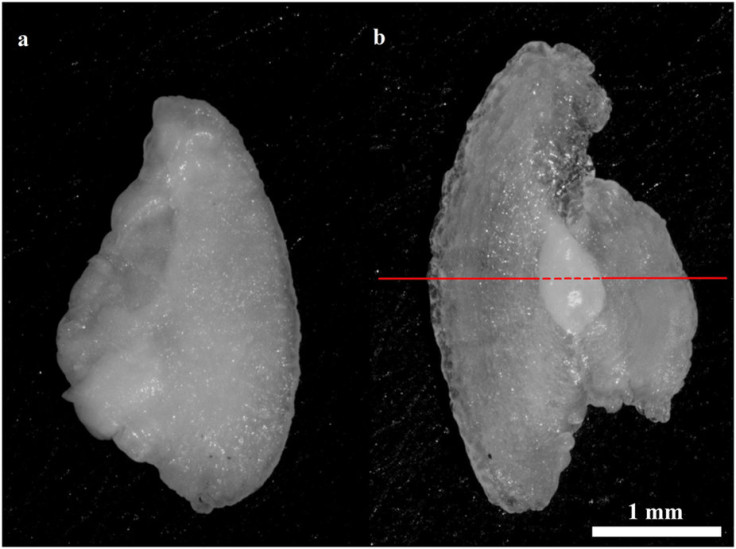Half of the world's farmed fish 'going deaf' from ear deformities

Half of globally farmed fish suffer from hearing loss due to deformities in their ears. A study found deformities are 10 times more likely in farmed fish than wild ones, suggesting fish farming is causing harmful changes to the fish.
Previous studies have found differences in wild and captive fish ears. "The deformity occurs when the typical structure of calcium carbonate in the fish earbone is replaced with a different crystal form," said Tormey Reimer, lead author of the research. "The deformed earbones are larger, lighter and more brittle, and the way they perform within the ear changes. The deformity occurs at an early age, most often when fish are in a hatchery, but its effects on hearing become increasingly more severe as the fish age."

Researchers from the University of Melbourne analysed fish from the world's five biggest salmon-producing nations (Norway, Canada, Scotland, Chile and Australia), to see if the deformities were found across the globe. They compared the difference in earbones of farmed and wild fish, and used a model to predict how much the fish can hear.
The results, published in Scientific Reports, found the deformities were 10 times more likely in farmed salmon than wild ones. "Our research suggests that fish afflicted with this deformity can lose up to 50% of their hearing sensitivity," said Tormey Reimer, lead author of the research.
"Something about the farming process is causing the deformity. We now need to work out what is the root cause to help the global salmon industry produce fish with acceptable welfare standards."
Deformed earbones could explain why fish conservation programmes are struggling, the researchers say. Billions of captive-bred salmon are released into the wild every year, but their survival rate is between 10 and 20 times lower than wild salmon.
The researchers say the poor performance of these programmes has been a mystery. However, hearing loss means predators can stalk the salmon without being heard, potentially accounting for their reduced survival rate.
"We think that compromised hearing could be part of the problem," said Steve Swearer, researcher working on the study. "All native fish re-stocking programs should now assess if their fish have deformed earbones and what effect this has on their survival rates. If we don't change the way fish are produced for release, we may just be throwing money and resources into the sea."
© Copyright IBTimes 2025. All rights reserved.






















